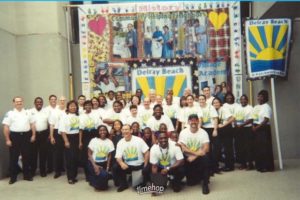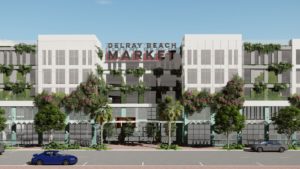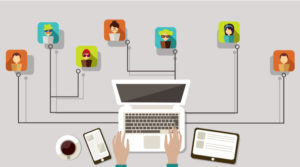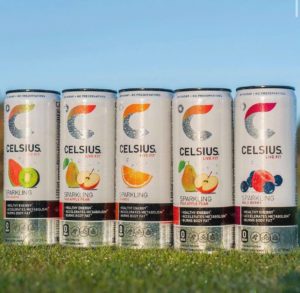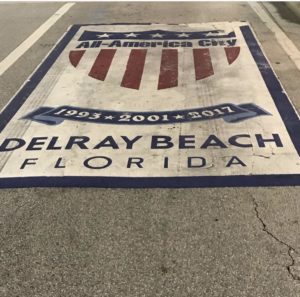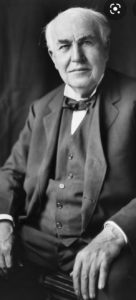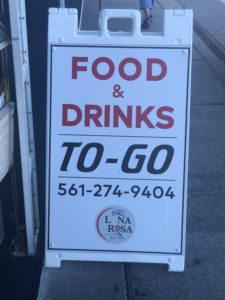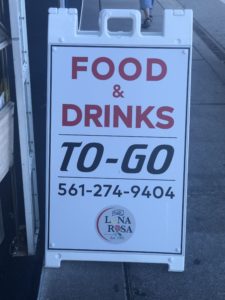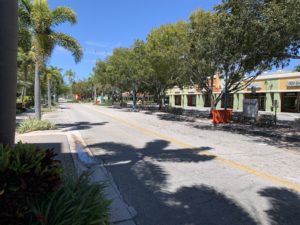
Random thoughts on the passing scene…
Last week, I shared that I was invited to be the inaugural speaker for the “Paw Power Hour” at Palm Beach State College’s Boca Raton campus.
What an honor, what a turnout, what a wonderful opportunity to interact with students and faculty.
We talked about leadership in difficult times, careers, education, entrepreneurship, and the challenges facing students (and educators) in a high-priced economy that is challenging for everyone.
Provost Van Williams is striving to build a special culture on the south campus and based on the people I met, it’s working.
I love the mission of state colleges and believe they perform an essential role in our society.
If you have a chance, visit the campus, sign up for a course and tell our legislators that we need to support the men and women who are educating our future workforce.
These types of institutions often fly under the radar, but places like Palm Beach State College are the backbone of our community.
I was grateful for the opportunity to learn and share a little of my story.
I was also thrilled to learn about the existence of the Kimmel Leadership Academy.
A group of 27 students recently went through the program thanks to a generous gift from the Virginia and Harvey Kimmel Family Foundation.
The Kimmel’s live in Delray. They are wonderful contributors and philanthropists.
The curriculum for the Kimmel Leadership Academy, based on the Social Change Model of Leadership, was developed by Dr. Kalisha Waldon, a professor at the PBSC Boca Raton campus. It emphasizes seven key values that individuals, groups and communities should strive for to create change through leadership.
The participants were picked from nearly 100 applicants. During the academy, students learned about team building, personal branding, understanding their values, etiquette, and other topics. Each student also received a $1,000 scholarship and were recognized at a campus awards banquet.
This is the kind of effort we need to build our next generation of leaders.
PBSC is doing their part and it’s so exciting.
The Vital Role of Local News
I’ve long been passionate about the importance of local journalism.
So I’ve been pouring through new research released by the Democracy Fund that shows the power of local news done right.
Some of the takeaways to ponder:
- Strong local journalism = more people turning out to vote.
- Weak local journalism = fewer people vote.
- Thorough local journalism helps people be less biased when considering candidates for office.
- Quality local journalism can counter divisive national narratives that contribute to polarization.
- Every dollar spent on local news produces hundreds of dollars in public benefit by exposing corruption and monitoring government spending.
- People feel a stronger sense of community in places that have strong local journalism.
- Local news keeps communities informed during times of upheaval, like disasters, protests, and pandemics — when people need critical information to engage their communities and leaders.
- Important to remember: Local news isn’t inherently good for communities just because it’s local. It needs to be good local journalism.
I’ve long felt we’ve been underserved and ill-served by some of our local media—sorry guys. TV news does a good job with weather stories but lacks enterprise or investigative journalism and print has dried up.
The lack of a local water cooler—so to speak—gives rise to lots of misinformation on the Internet and social media that can be very harmful to a community.
In Delray, we have seen voter turnout crater. That’s not the sign of a healthy community. Local government matters and those who get elected can and do have an outsize impact on our quality of life.
Back in the 80s, 90s and early 2000s, locals had a rich diet of local news: The Monday-Thursday papers, Boca/Delray News, Palm Beach Post, Sun-Sentinel and even the Miami Herald (on big stories) covered all aspects of local government. People were informed and involved. It made a difference.
Which leads me to Friends of Delray.
For a long time, I stayed away. I was rooting for them and I supported the mission of bringing the community together, promoting transparency and good government, but I’ve seen prior efforts fizzle and quite frankly I’m exhausted. It’s time for a new generation of leadership to step up and right the ship.
Seeing a once independent and successful CRA taken over by politicians in the middle of the night and Old School Square evicted from the campus it created, loved and supported for 30 plus years takes the wind out your sails. Life is just too short.
But I like this group. We haven’t had this spirit here in quite some time. Their work is needed. so I will do my part. I hope you will check them out and if you like what you see. maybe you can help too. They need the community behind them.
Their website, e-blasts, social media posts and now podcast/videos are not traditional journalism per se. There is a point of view, but from where I sit that point of view is to promote local non-profits, urge citizen involvement, strive for transparency in government and dialogue among neighbors. They seem very reasonable and we can sure use reason.
Check it out and make up your own mind. Here’s a link to their site which includes articles and a link to their newly launched podcast. https://www.friendsofdelray.us/
Goodbye and thank you Fed
He never did play the Delray Open.
Sigh.
But that’s about the only gap in Roger Federer’s resume.
The tennis legend announced his retirement last week thanks to age and a balky knee.
What a career!
What a gentleman!
Fed has been the best ambassador for his sport imaginable and leaves behind an unforgettable legacy and is a case study in grace and class.
So, whether you play tennis at Path Reef Park or Pickleball at Pompey Park you may want to channel your inner Federer and see where it leads.
He will be missed.
Reading List
I’m on a reading tear lately and I thought I would share some of the books that are well worth your time.
“Saved by a Song” by singer Mary Gauthier is an honest, emotional and raw autobiography of an artist I have grown to love and admire.
Music is so powerful and such a restorative force in our lives. Mary’s song “Mercy Now” should be an anthem for our time. It’s certainly an antidote for some of the poison and hatred in the air these days. She’s coming to the Broward Center in January and we got tickets. I can’t wait.
“Bird by Bird” by Anne Lamott has long been on my radar. As someone who loves to write, I’ve been told that Lamott’s book was a must read. I finally got around to it and she delivered. A great treatise on the joy and difficulties of the writing life told by a sensitive soul.
“Like a Rolling Stone” by Jann Wenner is a tome and I just started it but can’t put it down. The founder of Rolling Stone magazine has met all of my heroes and he’s a terrific storyteller. What a life…
Until next week.
